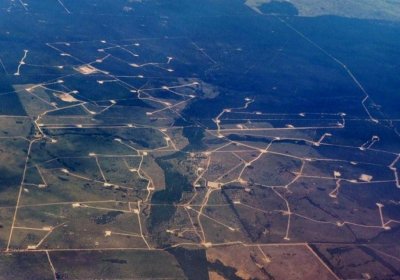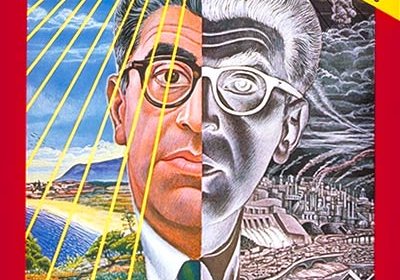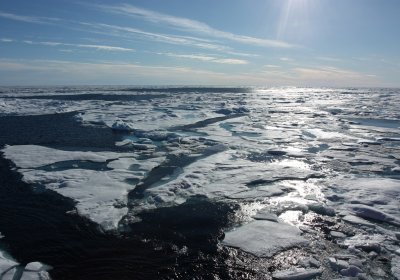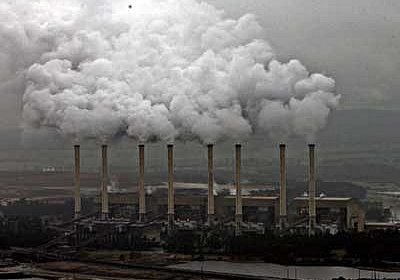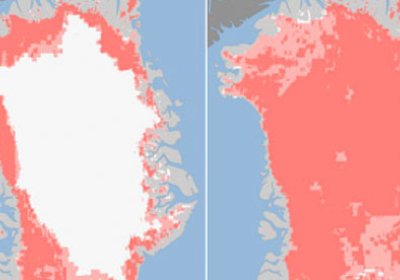Groups campaigning to stop the roll out of coal seam gas (CSG) mining have slammed federal resources minister Martin Ferguson for his attack on two Southern Cross University scientists who released results of their research into the CSG industry’s greenhouse gas emissions.
Simon Butler
The people of the west African nation of Guinea suffer high rates of poverty and malnutrition. In some of Guinea’s regions, more than 40% of people are food insecure.
Yet overseas investors have bought 100,000 hectares of land in Guinea to grow soy and corn for export and biofuel production. A further 1.5 million hectares of Guinea’s farmland will soon be up for sale.
The United Nations has warned that world grain reserves have fallen to critically low levels as world food prices have risen to levels close to that of 2008 — a year in which food riots took place in more than 30 countries.
Barry Commoner, “a leader among a generation of scientist-activists” (New York Times) and possibly “the greatest environmentalist of the 20th century” (Ralph Nader), died in New York on September 30, aged 95.
If there is one thing melting away faster than the Arctic ice cap it’s the credibility of the global carbon trading system set up under the Kyoto treaty to address climate change. A United Nations sponsored panel said in a September 10 report that “global carbon markets ... are collapsing with potentially devastating consequences”.
After melting past the previous record minimum in late August, Arctic sea ice cap has continued its rapid decline.
By September 5, the US National Snow and Ice Data Centre (NSIDC) said the ice cap had fallen below 4 million square kilometres ― “a 45% reduction in the area of the Arctic covered by sea ice” since the 1980s and ’90s.
This year’s melt “didn’t just touch the record, it really drove right through it”, the NSIDC’s Ted Scambos told US National Public Radio on September 12.
Five anti-coal protests took place in Australia over four successive days. The actions targeted coal exports, coalmining, coal transport and coal port infrastructure.
The first action took place in Melbourne on September 3, where four members of Quit Coal climbed the roof of Victoria’s parliament house and unfurled a huge 86 square metre banner.
The banner displayed a quote from NASA climate scientist James Hansen — “Coal is the single greatest threat to civilisation and all life on our planet” — and asked, “Why is Baillieu funding coal?”
Three Victorian coal-fired power stations slated for closure will now stay open, resources minister Martin Ferguson said on September 5. He said he ended talks to buy out the three Latrobe Valley plants because the owners had asked for too much.
Labor and Greens agreed to pay owners to close down six coal-fired power plants under their Clean Energy Future package. The package also includes the new carbon price scheme.
Australia will join its carbon price scheme with Europe’s emissions trading scheme (ETS) by 2015. The decision means Australia’s future carbon price will be set by a European market notorious for fraud scandals, consumer rip-offs and a seven-year-long record of failure.
More than 2 million square kilometres of Arctic ice that should be there, is not. A few years ago, United Nations models predicted climate change would lead to ice-free Arctic summers within 100 years.
Now, some scientists say it could melt away completely within the next few 100 weeks. And there is next to no chance it will recover.
For climate solutions plan, see:
The Socialist Alliance 10-point climate action plan
Opposition leader Tony Abbott says he wants to open a “new debate about freedom of speech”. But Abbott is most interested in defending “free speech” for Australia’s rich and powerful at the expense of oppressed and marginalised groups.
In the space of a decade, Australia’s mining sector has come to dominate the country’s economic life. In June, Reserve Bank governor Glenn Stevens said mining investment is tipped to “be about as large as business investment in the rest of the private economy combined” by mid 2014.
- Previous page
- Page 5
- Next page
